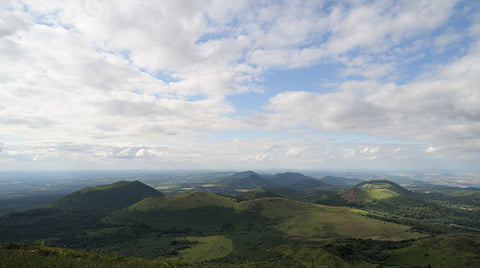It’s not new news that we’re in the middle of a climate crisis. In recent years we’ve seen major floods across Europe, wildfires, crop failures, rising sea levels, and melting glaciers on a global scale. Global plans to reduce greenhouse gas emissions are inadequate if warming is to be limited to 1.5C. We have already exceeded 1.1C and are on a path to 2.7C. To meet the 1.5 degrees, target global net zero must be achieved by 2050 .
Emissions from the world food system alone make it impossible to reach the 1.5°C target, without even considering fossil fuel production. Food has to be part of the solution. Livestock production is driving climate change and biodiversity loss, world meat production is projected to double by 2050, with the global population expected to increase from 7.2 to 9.7 billion in 2050. Based on these current food and population trends, it will be impossible to meet the populations nutritional needs, 1.5°C climate goals, and restore biodiversity.
Livestock emissions come from methane released from animals as they digest their food, plus the grains needed to feed livestock. 45% of the emissions come from feed, including land use and the production of fertilisers and pesticides, as well as emission from manure. This is clearly a problem.
One of the easiest ways we can reduce our carbon footprint is to cut back on meat and dairy. It’s about moving to sustainable diets - eating in a way that is better for the planet and for our health - eating more pulses, lentils, beans and vegetables and less meat and dairy. This switch will have a bigger impact than looking at food miles, choosing local or focusing on packaging. While these are all important with clear environmental and social benefits, change should start with our food choices.
A switch towards a more plant-based diet will reduce the demand for land, which will benefit biodiversity, forests and mitigate climate change. If the world population ate less meat and dairy the demand for land would go down, even including the extra crops that would needed to feed people. If everyone in the UK swapped one red meat meal for a plant-based meal, there would be a 50M tonne reduction in greenhouse emissions, which equates to 16M cars being taken off the road.
A serving of lentils are exceptionally good for the planet. They have a lower carbon and water footprint than all livestock products and many other plant crops. They also have a lower impact compared to many of the highly processed alternate meat products, the production of a plant-based burger emits on average 3 times the CO2 as a portion of lentils for example.
Lentils are also good for biodiversity and soil health. By fixing nitrogen in the soil, they improve the growth of future crops and reduce the amount of impacts needed, which can save a farmer money. They also act as a carbon sink, keeping CO2 in the soil and out of the air.
A wholefood used for thousands of years, lentils are packed full of key nutrients, with high amounts of fibre, carbohydrates and protein. As a food group, after soya and hemp, they have the highest protein amounts of any beans and provide up to 30% of their calories this way. This nutritional profile enhances their environmental credentials. Put simply, you get a greater variety of benefits across the board.
Puy Lentils have their own unique cultural and environmental heritage. Produced in the area of Le Puy en Velay, in the Auvergne region of France, for more than 2,000 years, the area is formed from ancient volcanic lava domes, which make the land naturally incredibly fertile without the need for additional fertilisers. This and the high, even altitude of the valley, creates a unique microclimate. These unique conditions reduce the carbon footprint of Puy lentils, compared to many other varieties.
One of the easiest steps anyone can make to help the planet and eat well is to switch to whole foods like lentils several times a week, or more. Lentils are a food from the past that will save the future.
To read the full Merchant Gourmet Environmental report written by Food Systems expert, Duncan Williamson, please click here.


